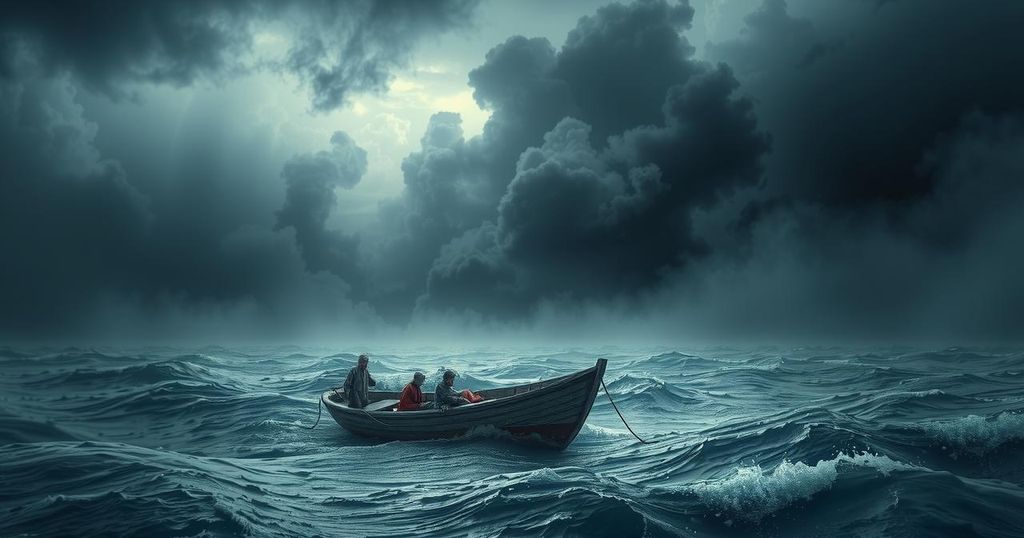The escalating conflict in eastern DRC is driving men like Jordan Bita to risk swimming across perilous rivers to avoid conscription by M23 rebels. Nearly 70,000 refugees have entered Burundi, facing dire conditions in makeshift camps. The situation is complicated by restrictions on male refugees remaining behind to defend their cities.
Amid escalating conflict in eastern Democratic Republic of Congo (DRC), men like Jordan Bita are risking their lives swimming across treacherous rivers to escape conscription by M23 rebels. Bita, 25, bravely navigated the powerful currents of the Rusizi river, which separates DRC from Burundi, while holding a bag of essential belongings. He managed to evade the rebels who were recruiting individuals to fight against the government.
With intensifying violence, nearly 70,000 people have sought refuge in Burundi as M23 rebels have gained control of major cities, including Goma and Bukavu, within a brief span. Upon arrival, refugees face strict scrutiny from Burundian authorities, who bar weapons to maintain peace. Many refugees, including Bita, are traversing difficult terrains to reach safety and provide for their families who arrived earlier.
Amani Sebakungu recounted his perilous swim across the river, acknowledging the dangers involved. Tragically, many have drowned while attempting the crossing; as reported, at least 20 individuals lost their lives recently in these treacherous waters. Clarice Kacindi shared her heartbreaking experience of losing her three-year-old child during a similar attempt, illustrating the harrowing reality many families face amid this turmoil.
As the situation escalates, hundreds of tents have been set up in makeshift camps where refugees receive limited shelter and food supplies. Conditions are dire with some families sharing tents or sleeping outdoors, as the influx of refugees overwhelms local resources. Meanwhile, Burundi is implementing measures to restrict the entry of men, compelling them to remain behind ostensibly to defend against M23 rebel incursions.
Burundi’s government is on high alert as M23 rebels advance southward, with fears that their strengthening presence may embolden local insurgent groups. International agencies, including the United Nations, emphasize the need for support to accommodate refugees effectively and avert conflicts between displaced populations and host communities. Veteran refugee Magega Mwarui, having fled several times himself, emphasized the continuous struggle against conflict in the region.
As families like Charlotte Odile’s seek tranquility in the aftermath of violence, the need for stable, safe shelters for the children is increasingly urgent. This ongoing crisis highlights the complex interplays of ethnic tensions and regional insecurities in the Great Lakes area, necessitating timely humanitarian responses.
The ongoing conflict in eastern DRC has forced thousands to flee, often risking their lives to evade conscription by armed groups. With humanitarian conditions deteriorating, international support is critical to assist both the refugees and the host communities in Burundi. As regional dynamics evolve, peace and safety for displaced families remain a pressing concern, emphasizing the necessity for sustained diplomatic efforts to resolve the crisis.
Original Source: www.bbc.com






